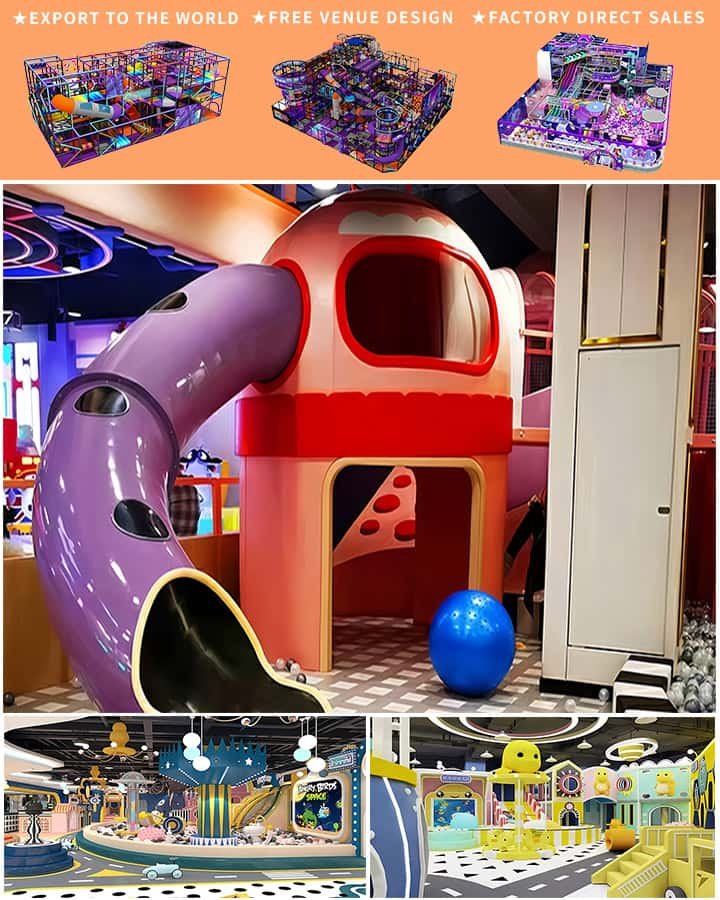Playgrounds are a fundamental part of childhood development, offering children a space to explore, interact, and engage in imaginative play. They are equipped with various types of playground equipment that cater to different age groups and abilities. Below is a comprehensive list of some popular types of playground equipment, each serving unique purposes in promoting physical activity, social interaction, and cognitive development among children.
1. Slides
Slides are perhaps the most iconic piece of playground equipment. They come in various shapes and sizes, including straight slides, spiral slides, and wavy slides. Slides provide an exhilarating experience as children zip down from a higher platform to the ground, helping develop their sense of balance and coordination.
2. Swings
Swings are timeless classics found in nearly every playground. They come in several varieties, such as traditional rope swings, belt swings, and tire swings. Swings allow children to experience the joy of soaring through the air while improving their motor skills and building upper body strength.
3. Seesaws
Also known as teeter-totters, seesaws involve two seats balanced on a pivot point. When one child goes up, the other comes down. This equipment promotes cooperation and helps children learn about balance, weight distribution, and turn-taking.
4. Merry-Go-Rounds
 Merry-go-rounds are circular platforms that can be manually spun or powered by pedals. These structures are often adorned with seats shaped like animals or cars, providing a fun way for children to enjoy rotational movement and practice teamwork.
Merry-go-rounds are circular platforms that can be manually spun or powered by pedals. These structures are often adorned with seats shaped like animals or cars, providing a fun way for children to enjoy rotational movement and practice teamwork.
5. Climbing Structures
Climbing structures include ladders, climbing walls, cargo nets, and jungle gyms. These setups encourage physical fitness, problem-solving, and risk assessment as children navigate their way to the top, enhancing their gross motor skills and boosting confidence.
6. Balance Beams
Balance beams are low to the ground and made of wooden or plastic materials. They challenge children to walk across without losing their balance, fostering concentration, stability, and core strength.
7. Sandbox
A sandbox provides a tactile experience where children can dig, build, and explore using toys such as shovels, buckets, and molds. Sandplay encourages creativity, fine motor development, and sensory exploration.
8. Play Houses
Play houses come in various designs, mimicking real-life structures like cottages, castles, or fire stations. These structures stimulate imaginative play and role-playing, helping children develop social skills and storytelling abilities.
9. Spring Riders
Spring riders feature a bouncing seat mounted on a spring base. Children can enjoy the sensation of bouncing up and down while holding onto handles, which helps improve their leg strength and overall coordination.
10. Musical Instruments
Some playgrounds incorporate musical instruments like drums, xylophones, and marimbas. These interactive features encourage children to explore sound and rhythm, fostering auditory discrimination and musical appreciation.
11. Zip Lines
Zip lines offer an adventurous experience where children glide along a cable from one platform to another. These installations require harnesses for safety and provide excitement while promoting spatial awareness and a sense of adventure.
12. Tunnels
Tunnels come in various lengths and shapes, allowing children to crawl through and explore. They can be made from plastic or soft materials and help develop spatial orientation and muscle strength.
Conclusion
The variety of playground equipment available plays a crucial role in supporting the holistic development of children. From slides and swings to climbing structures and musical instruments, each piece offers unique opportunities for physical exercise, social interaction, and creative expression. By incorporating diverse types of equipment into playground design, we can create inclusive and stimulating environments where children of all ages and abilities thrive




